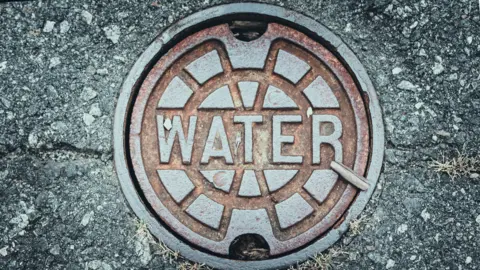Stormont investment plan ‘won’t solve water crisis’
 Getty Images
Getty ImagesThe Northern Ireland Executive’s forthcoming investment strategy will fail to tackle the crisis in water infrastructure, a construction industry body has warned.
The strategy is due to set out Stormont’s infrastructure priorities for the next 10 years.
The Construction Employers Federation (CEF) says it understands that annual infrastructure spending will remain close to its current level in real terms.
The CEF’s chief executive told MLAs while the plan may be realistic it "lacks ambition."
 Getty Images
Getty ImagesMark Spence said he understood that the Executive will announce plans to spend around £26bn over a decade.
However he said that in real terms that simply represents this year’s infrastructure budget, with a small inflation uplift, multiplied by ten plus a small amount of borrowing.
Mr Spence added that it will fail to "outline a sustainable path towards delivering the huge uplift in investment in the NI economy that we need."
He was among construction leaders giving evidence on the impact of Northern Ireland’s Water’s capacity constraints.
 Getty Images
Getty ImagesHousebuilding in Northern Ireland fell to a 60-year low last year, partially due to restrictions on new connections to an underfunded water system.
Plans for an estimated 19,000 homes are being held up duroyle to the restrictions.
The current situation is a "fiasco", Ciaran Fox from the Royal Society of Ulster Architects told the MLAs.
He said there was a postcode lottery where development was permitted in some areas, potentially permitted in others at additional cost and in some places effectively banned.
In August NI Water said an outdated and at capacity sewage network is stalling construction in 23 towns.
Mr Fox said the situation was being exacerbated by bureaucracy which was "preventing reasonable solutions" for some projects.
Among those giving evidence there was a consensus that the current funding model for NI Water was unsustainable.
Mr Spence said the industry was not calling for privatisation but that MLAs should consider alternative funding models like mutualisation.
"Short of a fundamental reform of this nature we fail to see how the Executive can sustainably fund NI Water’s needs," he said.
